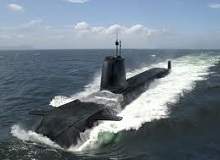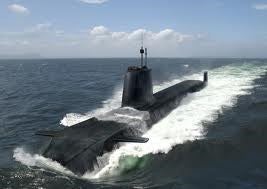

In addition to its high mechanical strength and general corrosion resistance, DEF STAN 02-835 also offers a good resistance to impingement, very good anti-galling properties, a freedom from hydrogen embrittlement and a high impact strength. These attributes have enabled this material to be utilised not only in marine and offshore environments but also for high strength critical components in the chemical processing, general engineering and automotive industries.
The heat-treated and stress relieved condition is the optimum condition for this alloy as it helps not only to improve the strength and toughness of the material but also to minimise the risk of stress corrosion cracking. Furthermore, this condition enables close machining tolerances to be held during final manufacture.
DEF STAN 02-835 is specified for its excellent marine corrosion resistance, outperforming the standard cupronickels 90/10 and 70/30 in freshwater, seawater, brackish water and also many polluted industrial waters. In addition, DEF STAN 02-835 exhibits a very good resistance to bio-fouling, waterline corrosion, pitting and crevice corrosion. Like the aluminium bronzes, much of this corrosion performance can be attributed to the aluminium content, which allows the material to rapidly reform its protective oxide film under conditions of corrosion and erosion.
DEF STAN 02-835 is galvanically compatible with most other copper-based alloys. Despite being intrinsically less noble than duplex and austenitic stainless-steels, the aluminium oxide film allows a certain protection against significant preferential corrosion; however, good design should be employed to minimise corrosion be-tween dissimilar metals. Unlike most other high strength nickel-based alloys, titanium grades and stainless steels, DEF STAN 02-835 is not susceptible to hydrogen embrittlement. This immunity gives the material a significant selection advantage in environments where dissimilar metals or cathodic protection are present or where hydrogen is continually evident.
DEF STAN 02-835 also offers a very low magnetic permeability of <1.01 and is resistant to galling both oper-ating against itself and against other materials such as duplex stainless-steel and aluminium bronze. It can be fabricated reasonably well and has the capability to be hot formed, readily machined, brazed, soldered and welded. The MoD (navy) standard also calls for a high impact strength to be achieved and an ultrasonic inspection for Grade 1 material. When these are coupled with the material’s high strength and toughness, the alloy becomes desirable for use in many safety critical components, including critical fasteners, valve and pump trim, gears, sonar equipment, shafts, connectors, pipe couplings, flanges and subsea components.
- Very high mechanical strength
- Excellent corrosion resistance
- High galling resistance
- Low magnetic permeability
- Excellent cryogenic properties
- Good weldability
- Resistant to hydrogen embrittlement
- High ductility
- Good anti-fouling resistance
- Readily machinated/fabricated

